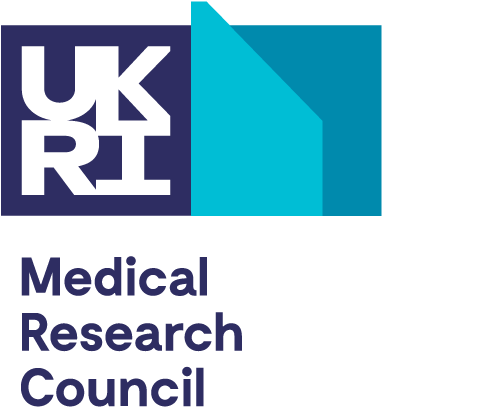Roles during the meeting
Applications that pass the shortlisting or stage one proceed to a full funding meeting. Some applications may be assessed with a face-to-face interview, but most are assessed as written by a research board or panel.
Board or panel attendees
Chair
The chair is responsible for ensuring funding decisions are credible. Chairs:
- create an environment where conditions for bias are mitigated and all members feel able to contribute to and challenge discussion
- ensure that all members’ views are considered in decision making
- ensure that all applications for funding are assessed in accordance with the published process and criteria
- manage the interview process if applicable, for example fellowship panels, and ensure each panellist is given equal opportunity to ask the applicant questions in the open questioning after the introducers
Deputy chair
The deputy chair takes on the role of chair when the chair has a conflict of interest with any of the applications being discussed.
Introducers
Two or three board or panel members are assigned to each application as introducers by the Medical Research Council (MRC) staff and present the application at a meeting. In an interview panel they will lead the questioning and discussions.
Introducers are selected for their relevant expertise in and independence from the application. Should expertise be required from another field, guest introducers are invited to contribute to discuss and score the application.
During the meeting or, if applicable, following the interviews:
- introducer one presents a brief synopsis of the application, focusing on its strengths and weaknesses aligned with the assessment criteria
- introducers two and three, where applicable, do not reiterate points already made but highlight additional points and any significant differences in opinion
The discussion may also include input from the wider board or panel.
Following completion of the discussion each introducer provides an indicative score between one and ten, using the core assessment criteria for the opportunity.
The introducers give this score in light of:
- their own views
- the views of the expert reviewers
- the applicant’s response to the reviewer comments
Board and panel members
Board and panel members are encouraged to read all applications they are not conflicted on. In meetings, members participate in an open discussion following the introducers’ evaluation of each application. If applicants are interviewed, members have the opportunity to ask additional questions of the applicant before then participating in a closed discussion.
After hearing the indicative scores from the introducers, each member scores the applications anonymously using the one to ten scoring matrix for board and panel meetings. Scores should not deviate by more than two from the indicative scores proposed by the introducers unless the panellist has expressed their views during the discussion of the application.
Board and panel associates
The board and panel associates scheme provides researchers with the opportunity to:
- gain valuable experience in peer review
- serve on an MRC funding board or panel
- benefit from mentorship over a two-year programme
- benefit from mentorship from standing board or panel members over a two year period
Associates are matched to the board or panel that aligns with their expertise. They receive comprehensive training and are assigned board or panel members as mentors to guide their development throughout the scheme.
The following boards and panels have associate members:
- Infections and immunity board
- Molecular and cellular medicine board
- Neurosciences and mental health board
- Population and systems medicine board
- Developmental pathways funding panel
- Experimental medicine panel
Initially, associates attend meetings in an observational capacity. As associates progress, they will begin to contribute to the assessment of applications through a defined process and under the supervision of their mentor. The associate, their mentor, the board or panel chair and the MRC Head of Theme will agree collaboratively when the associate is ready to progress to this step.
At all stages of the scheme, associates adhere to the same confidentiality and conflict of interest protocols as standing members.
Board and panel observers
Observers will be present at some board and panel meetings to observe the discussion of a subset of funding applications relevant to their expertise. They will not observe any strategic discussions or ranking of applications and will not have any involvement in assessment.
The following boards and panels have observers:
- Infections and immunity board
- Molecular and cellular medicine board
- Neurosciences and mental health board
- Population and systems medicine board
- Developmental pathways funding panel
- Experimental medicine panel
Observers are subject to the same confidentiality and conflict of interest requirements as panellists.
They are given access to the assessment information for the applications they observe. Access is withdrawn immediately after the funding meeting.
Find out more about board and panel observers.
MRC staff attendees
Head of theme
The head of theme is the accounting officer for the board or panel budget and responsible for the board or panels’ contributions to MRC delivery plan objectives.
At a funding meeting the head of theme manages the available commitment budget, which may be used to support:
- responsive applications within the remit of the board or panel
- MRC contributions to applications of joint interest from other funders
- post-award adjustments
Head of programme
The head of programme is responsible for delivery of the board or panel meetings. The head of programme manages the funding meeting, securing the ranking and funding recommendations to support the board or panel business. This includes:
- working with the head of theme in managing the board or panel’s allocation of research funding
- ensuring the board or panel’s procedures and practices are consistent with effective peer review-supported decision making
- brief the board or panel about the importance of fairness and mitigating bias
The head of theme and head of programme have an explicit role in upholding the prescribed process and should challenge decision making that deviates from it, as part of a duty to prevent bias.
Programme managers
Programme managers undertake a range of activities related to the research areas for which they are responsible.
Programme managers manage a subset of applications, liaising with applicants prior to submission and ensuring high quality peer review. They are the point of contact for these applications at the meeting and communicate important information to the board or panel, for example when an application fits a priority area.
They also raise questions from MRC staff or from reviewers when appropriate. Programme managers minute discussions, communicate decisions and feedback to applicants, and are also responsible for any follow-up action after the board or panel meeting. Programme managers also provide updates on board or panel initiatives or opportunities and relevant MRC activity.
Board and panel team
The board and panel teams provide the administrative support for peer review, liaising with peer reviewers, board and panel members and applicants throughout the process.
They also organise the logistics of the meeting, including:
- room set-up
- refreshments
- escorting panel members, guests and observers
- providing papers
During the meeting the team will manage conflicts of interest, the scoring, projecting ranked list of applications, capture outcomes and take minutes.
Bias awareness scheme
It is everyone’s responsibility to ensure that meetings are conducted fairly and consistently and to challenge bias. There is guidance for board and panel members on tackling bias which gives examples of bias and the best ways to intervene.
Up to three points of contact will be identified at the beginning of each panel meeting. These are typically the chair, head of theme, head of programme and board or panel manager. Channels of escalation to express any concerns or discuss bias will also be identified.
Funding adjustments
The board or panel may ‘prune’, meaning make a lower commitment to an award than requested by the applicant, where either the programme of work is not fully justified by peer review or specific resources are not fully justified for this programme of work.
The decision to prune occurs during the main assessment of the application prior to scoring, not in the later ranking and funding decisions. Scoring is carried out based on the value of the pruned award.
Scoring
Following discussion, each application is scored from one to ten by each member using the core assessment criteria.
Scores are submitted anonymously and collated electronically. The median score of the individual member scores, rounded to the nearest whole number, is used to rank all applications under consideration. The final median score is made known to applicants.
Ranking
At the end of a meeting, all applications are ranked by their median score. A cumulative commitment line can then be drawn, to determine the median scoring categories in which all grants can be funded and the scoring category in which not all the applications can be supported, given the available budget.
Additional consideration of the applications in the latter category is then used to determine which of those attaining the same score should be supported, and which not, taking into account quality, likely impact and fit to MRC’s strategic priorities.
For applications assessed at one of MRC’s four research boards, applications that address either MRC’s long-standing commitment to new investigators or any identified board opportunities will be given special consideration in this process.
Invited resubmissions
A declined application is typically not eligible for resubmission within 12 months from the date of full submission. This moratorium can be waived by the board or panel, where suggested modifications may make the work competitive. Low scores are no bar to an invited resubmission where appropriate and may be suitable where key issues undermine an application.
Communication of decisions and feedback
MRC staff are responsible for communicating decisions to applicants within 10 working days of the funding meeting.
Applicants will have received expert review comments prior to the funding meetings. For most meetings, they would have an opportunity to respond in writing. For meetings with interviews, they will have the opportunity to discuss the comments and for outlines the applicant would have received feedback following the outline stage and an opportunity to make iterations, if invited to submit a full application.
After the funding meeting, applicants receive a summary of the funding meeting’s discussion, prepared by MRC staff. Meeting outcome reports are published following each meeting.
Last updated: 8 May 2025


